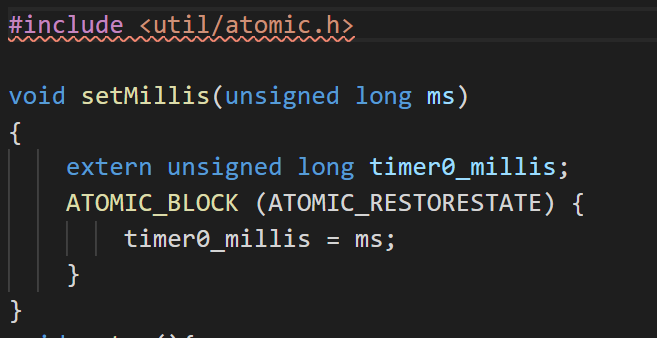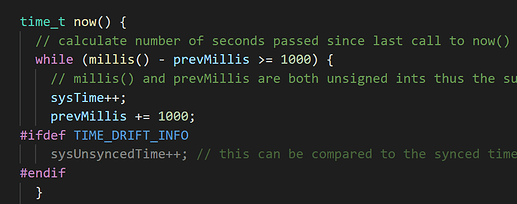Hello,
The RTC uses the millis() counter to keep time as shown below. This code is defined in Time.cpp
Since the millis() counter runs even during sleep( and I want it to run because I am using the RTC to wake), it will overflow after about 50 days. I want my device to last for a few years.
Now if the framework is implemented properly, then the code above would still work after a millis() overflow as laid out bye Nick Gammon here.
Even so, I want to test it by assigning a large value to the millis counter(). On regular Arduino’s I use an atomic block.

But the Heltech cubecell does not support this. Is there a way for me to test the millis() counter overflow?
Thanks =D

